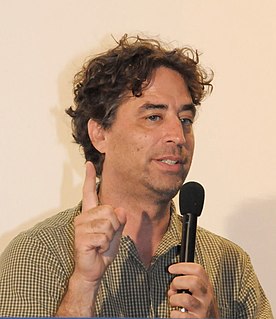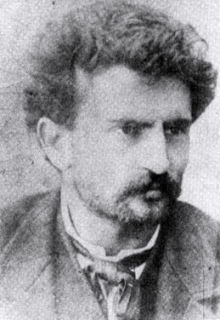Top 508 Intervention Quotes & Sayings - Page 9
Explore popular Intervention quotes.
Last updated on April 15, 2025.
Continuous wars - which we have now had since 2001 - starting with Afghanistan, continuing on to Iraq. And even since Iraq, it's been more or less continuous. The appalling war in Libya, which has wrecked that country and wrecked that part of the world, and which isn't over by any means. The indirect Western intervention in Syria, which has created new monsters. These are policies, which if carried out by any individual government, would be considered extremist. Now, they're being carried out collectively by the United States, backed by some of the countries of the European Union.
American press, like the press in many countries, acts like a cheerleader to our government rather than a critical observer. This is especially true, when it comes to foreign interventions. That means that when government leaders conclude that intervention in a foreign country is justified, the press rarely criticizes it. In fact, the press has been an enthusiastic cheerleader for many of our foreign interventions.
I think we create our world through stories. We use storytelling to escape or protect ourselves from the unimaginable and the horrible - from the real, in a way. It's like white light - if you put everyday reality through a prism you get this rainbow of colors that you couldn't see before. I'm interested in exploring the world to show the things that are invisible. And not just undocumented aspects of reality, but to actually make manifest things that have been hitherto invisible through the intervention of filmmaking.
I was deeply moved by Richard Blanco's reading of his inaugural poem-a timely and elegant tribute to the great diversity of American experience. And now comes this fine meditation on his experience of coming to poetry, of making the poem and the months surrounding its making-a testament to the strength and significance of poetry in American culture, something not always seen or easily measured. Today Is For All of Us, One Today is a necessary intervention into the ongoing conversation about the role of poetry in public life.
The nature of the economic system should be a matter for public choice, and free market capitalism should not be accepted without any discussion of the rich variety of alternatives ... Unlike civil laws, economic laws are imposed on people with all the authority of immutable laws of nature. But the economy is created by people, supported by government intervention, regulation, statute and subsidy, and implemented in such a way that it gives substantial wealth and power to a privileged few, while the majority face a life of relentless work, stress and periodic financial insecurity.
In a sense, every tool is a machine--the hammer, the ax, and the chisel. And every machine is a tool. The real distinction is between one man using a tool with his hands and producing an object that shows at every stage the direction of his will and the impression of his personality; and a machine which is producing, without the intervention of a particular man, objects of a uniformity and precision that show no individual variation and have no personal charm. The problem is to decide whether the objects of machine production can possess the essential qualities of art.
At the beginning of his administration, Reagan tried set the basis for American military intervention in El Salvador - which is about what Kennedy did when he came into office in regard to Vietnam. Well, when Kennedy tried it in Vietnam, it just worked like a dream. Virtually nobody opposed American bombing of South Vietnam in 1962. It was not an issue. But when Reagan began to talk of involving American forces in El Salvador there was a huge popular uproar. And he had to choose a much more indirect way of supporting the collection of gangsters in power there. He had to back off.
When you go into a country like Libya where a large chunk of the population wants the old regime back you could end up with a protracted civil war. That we're now in a stalemate was both entirely predictable, and predicted. That we're now relying on drones is disturbing. How vital can a cause be if we're not willing to risk American lives to defend it, and instead use robots and remote control operators? It gets me back to the larger feeling about the intervention - there's just not a compelling reason for us to be involved.
Yet we slink about like whipped curs:;... our self-abasement principally takes the form of subservience to the United States:;... we are under no necessity to participate in the American nightmare of a Soviet monster barely held at bay in all quarters of the globe by an inconceivable nuclear armament and by political intervention everywhere from Poland to Cambodia. It is the Americans who need us in order to act out their crazy scenario... We simply do not need to go chasing up and down after the vagaries of the next ignoramus to become President of the United States.
It is always brave to insist on undergoing transformations that feel necessary and right even when there are so many obstructions to doing so, including people and institutions who seek to pathologize or criminalize such important acts of self-definition. I know that for some feels less brave than necessary, but we all have to defend those necessities that allow us to live and breathe in the way that feels right to us. Surgical intervention can be precisely what a trans person needs – it is also not always what a trans person needs.
Through luminous and erudite readings of the texts, Hasana Sharp shows us how profound and radical is Spinoza's conception of nature and his claim that humans always remain part of nature, acting solely according to the same rules. She demonstrates the political consequences of adopting this perspective through a provocative intervention in contemporary feminist theory, while along the way opening promising avenues for future work in a variety of other fields, such as animal studies and ecology. This is a challenging and important book.
Economics and politics are so intertwined and interlinked that politics now, mainstream politics, extreme center politics, are little else but a version of concentrated economics. And this means that any alternative - alternative capitalism, left Keynesianism, intervention by the state to help the poor, rolling back the privatizations - becomes a huge issue. The entire weight of the extreme center and its media is turned against it, which in reality now is beginning to harm democracy.
The thing is, autism is all different, you know, variables. And you start out with a certain amount of, you know, the point where the differences in the brain are going to just be a personality variant and, like, for very mild Asperger's. But you get into more severe kinds of autism where there's obvious speech delay, obvious abnormal behavior in a two and three-year-old child, you know, the initial neurology is different from case to case. But all children with autism are going to do better if they get really good educational intervention.
[T]he mass-man sees in the State an anonymous power, and feeling himself, like it, anonymous, he believes that the State is something of his own. Suppose that in the public life of a country some difficulty, conflict, or problem presents itself, the mass-man will tend to demand that the State intervene immediately and undertake a solution directly with its immense and unassailable resources. This is the gravest danger that to-day threatens civilisation: State intervention; the absorption of all spontaneous social effort by the State.
Instead of agitating for war, the Jewish groups in this country should be opposing it in every possible way, for they will be among the first to feel its consequences. Tolerance is a virtue that depends upon peace and strength. History shows that it cannot survive war and devastation. A few very far-sighted Jewish people realize this and stand opposed to intervention. But the majority still do not. Their greatest danger to this country lies in their ownership and influence in our motion pictures, our press, our radio, and our government.
But let there be no misunderstanding: it is not that a real man, the object of knowledge, philosophical reflection or technological intervention, has been substituted for the soul, the illusion of theologians. The man described for us, whom we are invited to free, is already in himself the effect of a subjection more profound than himself. A 'soul' inhabits him and brings him to existence, which is itself a factor in the mastery that power exercises over the body. The soul is the effect and instrument of a political anatomy; the soul is the prison of the body.
Not that I ever felt the necessity of proving that all human beings suffer the same way, feel joy the same way, but it happened on my way - when I get close to these people, just by the simple intervention of translation I can actually reach them and ask them something, and their reaction is as I expected. I see that the relationship goes so smoothly, and I realize that cultural languages and specificities are nothing but simple obstacles that you can easily overcome. It's obvious that human beings are the same wherever they are.
I think the Scandinavian health systems are better when it comes to preventative care than the German system, because in the Scandinavian systems, the government is really more active in defining treatment, goals and defining health priorities. The German system is a competitive system with little government intervention. The price for this is that the government cannot set a health agenda. And the Scandinavian systems have little competition, so you often do have waiting lists. But on the other hand, you then have the government which can push for prevention.
To salvage a society, it is necessary to aid, abet, raise and increase that state of mind. If you were to set up a perfect government out here which required the intervention of nobody, you would have destroyed the society. But by raising the individual ability of the persons in the society within the framework that they are able to view, raise their ability within the framework they are able to view, you would have achieved a marked advance for that society.
Anarchists are opposed to violence; everyone knows that. The main plank of anarchism is the removal of violence from human relations. It is life based on freedom of the individual, without the intervention of the gendarme. For this reason we are the enemies of capitalism which depends on the protection of the gendarme to oblige workers to allow themselves to be exploited--or even to remain idle and go hungry when it is not in the interest of the bosses to exploit them. We are therefore enemies of the State which is the coercive violent organization of society.
... an essential feature of a decent society, and an almost defining feature of a democratic society, is relative equality of outcome - not opportunity, but outcome. Without that you can't seriously talk about a democratic state... These concepts of the common good have a long life. They lie right at the core of classical liberalism, of Enlightenment thinking... Like Aristotle, [Adam] Smith understood that the common good will require substantial intervention to assure lasting prosperity of the poor by distribution of public revenues.
Bold prayers honor God, and God honors bold prayers. God isn't offended by your biggest dreams or boldest prayers-he is offended by Anything Less. If your prayers aren't impossible to You, they are insulting to God- why? Because they don't require divine intervention. But ask God to part the Red Sea or make the sun stand still or float an iron axhead and God is moved to Omnipotent action
I oppose U.S. military intervention in Iraq. I believe that we should not send troops or engage in air strikes-our nation's military involvement needs to be over. The United States has already spent billions of dollars in Iraq while our nation has endured a crumbling infrastructure, cuts to our social programs, a lack of investment in job training and creation, and sadly, a failure to take care of our veterans. Let's focus our resources at home. Over 4000 men and women have sacrificed their lives for Iraq. That is enough.
According to the official version of history, CIA aid to the Mujahideen began during 1980, that is to say, after the Soviet army invaded Afghanistan, 24 Dec 1979. But the reality, secretly guarded until now, is completely otherwise. Indeed, it was July 3, 1979 that President Carter signed the first directive for secret aid to the opponents of the pro-Soviet regime in Kabul. And that very day, I wrote a note to the president in which I explained to him that in my opinion this aid was going to induce a Soviet military intervention.
In the past, foreign intervention was obviously a major problem. Foreign domination, or if not domination, interference. But that has ended. There is no foreign domination; there is minimal foreign interference. The Cold War has ended. The Soviet Union no longer exists. The United States is showing minimal and diminishing interest in the Muslim world. They now have to confront their own problems. The old excuses are gone. The old justifications are gone and therefore the anger of people is turning increasingly against their own rulers.
Absolutely love the new campaign from the Optimum Population Trust: do your bit for addressing climate change by having fewer children - or even no children. The lifetime CO2 emissions of a UK citizen amount to 750 tonnes (the equivalent - apparently - of 620 return flights between London and New York), so the extra 10 million by which our population will rise between now and 2074 will, over their lifetimes, emit around 7½ billion tonnes of CO2..."births averted" is probably the most single most substantial and cost-effective intervention that governments could be using
If you go back to Adam Smith, you find the idea that markets and market forces operate as an invisible hand. This is the traditional laissez-faire market idea. But today, when economics is increasingly defined as the science of incentive, it becomes clear that the use of incentives involves quite active intervention, either by an economist or a policy maker, in using financial inducements to motivate behavior. In fact, so much though that we now almost take for granted that incentives are central to the subject of economics.
The number of humble-bees in any district depends in a great degree on the number of field-mice, which destroy their combs and nests; and Mr. H. Newman, who has long attended to the habits of humble-bees, ... says "Near villages and small towns I have found the nests of humble-bees more numerous than elsewhere, which I attribute to the number of cats that destroy the mice." Hence it is quite credible that the presence of a feline animal in large numbers in a district might determine, through the intervention first of mice and then of bees, the frequency of certain flowers in that district!

























